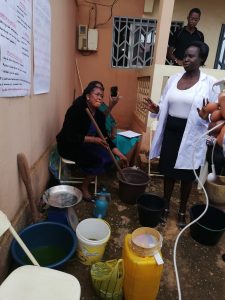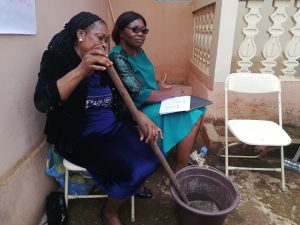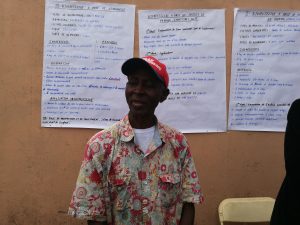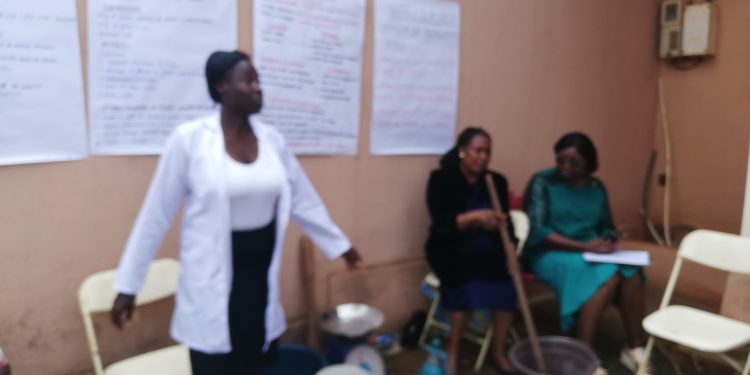Story, Louvier Kindo Tombe
Our health depends on what we get on the table, and what we get on the table comes from the farm.
“If the harvest is not healthy, we would not be healthy too,” says madam Ngo Nga Mbi Anne Flore, chief trainer, KCOA, SAILD project.

The project comprises of training some selected farmers as multipliers, who will in turn train other farmers in the field on how to produce organic pesticides for use in organic agriculture or agroecology.
It falls within the framework of activities of the Knowledge Center for Organic Agriculture (KCOA) which encourages farmers to embrace agroecology.
Agroecology is more than a farming practice, it is a way of life. It integrates a set of agricultural practices based on the use of elements available in nature to develop agro-pastoral production while preserving the soil and the environment as a whole.
Without pesticides, more than half of farm products would be lost to pests. Pesticides are important, but organic pesticides are the best in agroecology. Organic pesticides provide natural protection for endangered crops.

The thirteen multipliers who attended the training in Yaounde were schooled on how to produce pesticides with wood ash, pawpaw leaves among other natural sources.
“I have been using synthetic pesticides but today i learnt how to produce my own pesticide from natural sources,” says Ngon a Mbamba Benjamin, one of the multipliers from Bafia.

Synthetic pesticides are dangerous to both agricultural products and humans who consume the products. They are even costly. Spraying crops with synthetic compounds has adverse impacts on people, farm animals, wildlife, pollinators like bees and other living things that play an essential role in the ecosystem. The chemical runoff also damages the land and water. Farmers who work with synthetic pesticides are particularly vulnerable to side-effects.
That is why KCOA and SAILD opted to train farmers on local production of organic pesticides.
“The Idea here is that the production materials should be natural and very affordable,” says madam Ngo Nga Mbi Anne Flore.
One of the common materials used in the training was wood ash. According to the chief trainer, “Wood ash in this case has double functions, it serves as a pesticide and fertilizer”.
“Wood ash is rich in minerals needed by plants,” she added.
The training workshop started with theory followed by practicals.
The production process of wood ash pesticide is simple. 2 kg of wood ash for instance is mixed with 10 litres of water and the mixture is kept for 24 hours after which the liquid is seived into a container and it is ready for use on all plants that attracts pests.
“This training is important because it will go a long way to boost our farming skills and improve on our yields,” madam Eyango Nto Marie Claire said during the training.

“We have discovered today that with natural product around us, we can transform to treat our farms.”
The training will not end in Yaounde. It shall be extended to other regions of the country and even with the Central Africa sub region.
Cameroon it should be noted is host to one of the five Knowledge Hubs of the Knowledge Center for Organic Agriculture, precisely the knowledge hub for Central Africa.








